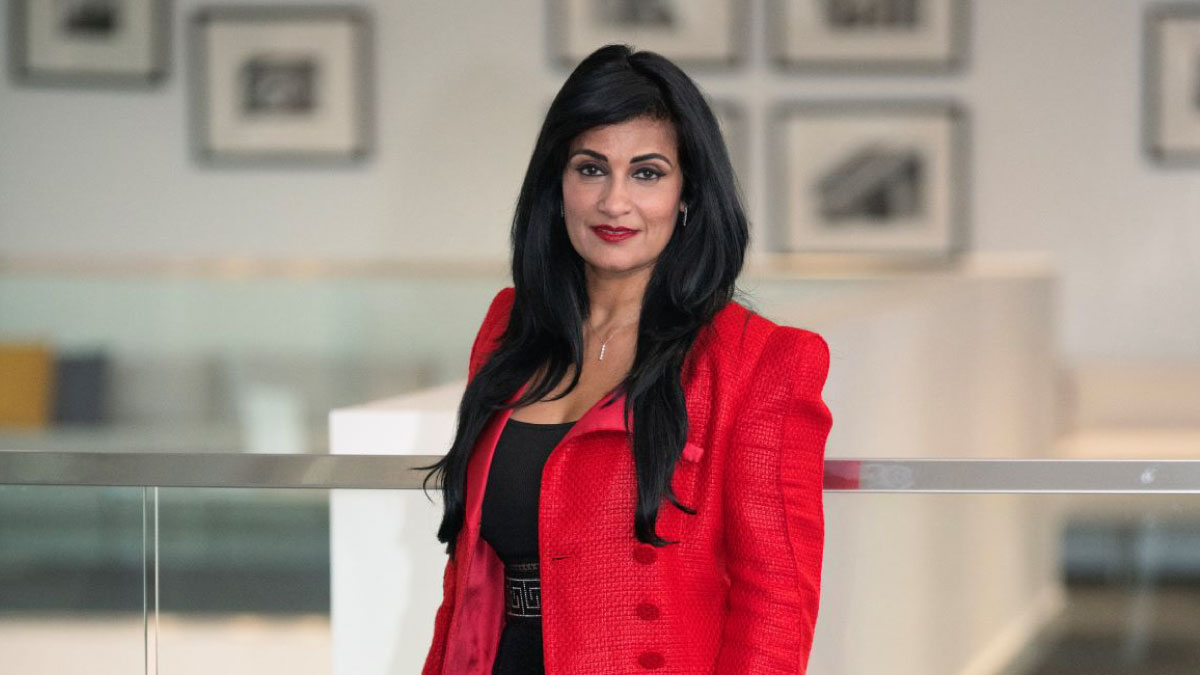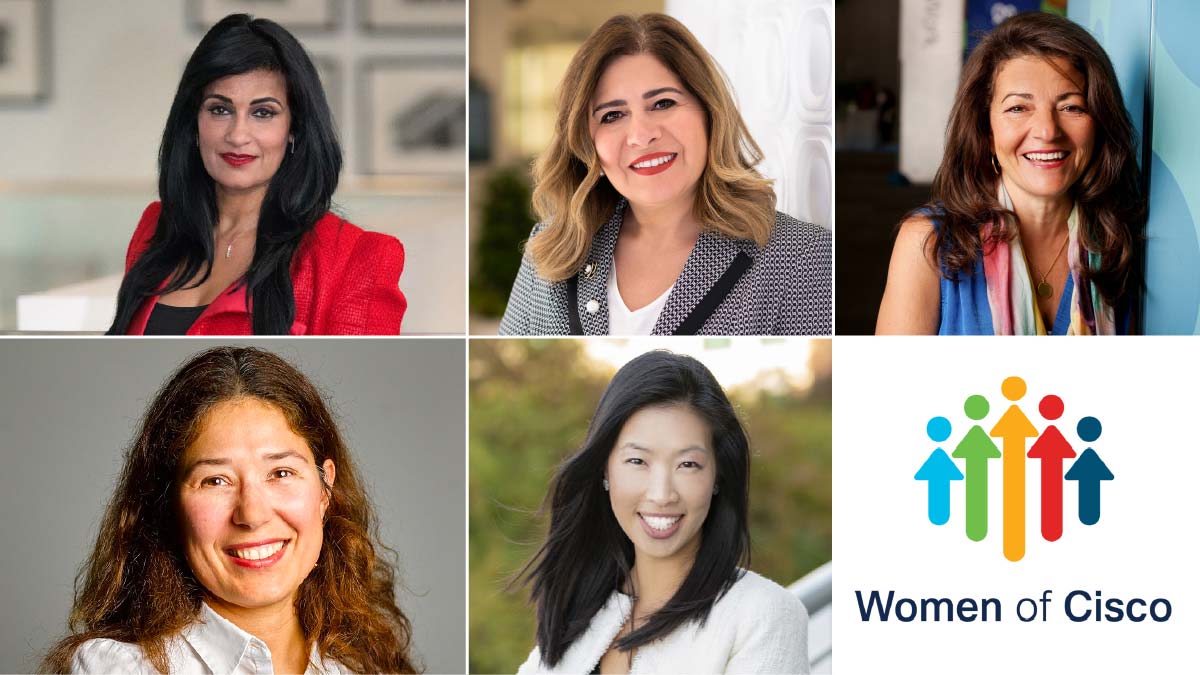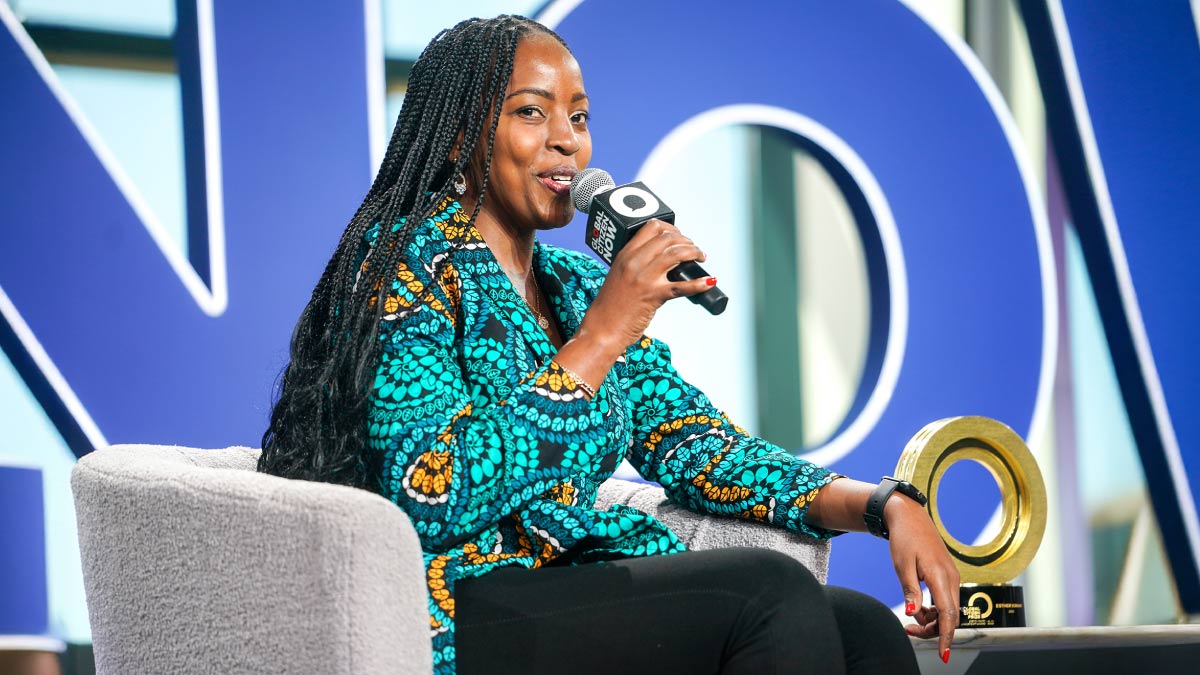The tech industry has accomplished astonishing things in recent decades. But gender equality is still a work in progress. And despite positive change at the more forward-looking organizations, navigating career success in traditionally male-dominated companies remains an ongoing challenge.
In recognition of International Women’s Day, we spoke with leaders from across Cisco about the resilience and inner strength they have discovered in tough times, along with their advice for others contending with unconscious bias and inequality.
There are many aspects to building resilience in a career. But for Elisabeth De Dobbeleer, vice president of Cisco’s Global Partner Organization for EMEA (Europe, Middle East, and Africa), it comes down to bouncing back from the speedbumps, setbacks, and stumbling blocks that test any career — but which may be more pronounced for many women.
“Everybody will have their own challenges as they go through life,” De Dobbeleer said. “But how do you cope with the bad times? And the key to that is the perspective and the trust and the confidence that everything at the end will be okay.”
Part of that perspective involves keeping sight of your own core values, no matter how hard the challenges might be.
“Resilience, for me,” said Denise Lee, vice president of Cisco’s Engineering Sustainability Office, “is about finding a way forward over, under, around or through without compromising your sense of self or your values and integrity — without losing sight of who you are.”

Denise Lee - Vice President of Cisco's Engineering Sustainability Office
For many women, finding that way forward is often a discovery. As Cisco SVP and Chief Communications Officer Maria Poveromo stressed, no one really knows their strengths until they’re tested. But that means taking on challenges that can feel scary, and getting past the doubts that might undermine first steps.
“All the growth experiences of my life have been when I quieted my doubts and just said, ‘go for it.’ For some of us, there’s a critical voice that will always be there,” she shared. “But you can quiet that voice and just jump in. No one wants to wake up in 20, 30 years and look back and say, oh, ‘I didn't do that because I was afraid.’”
De Dobbeleer added her own thoughts on the flexibility to try new things, take on challenges, and overcome the fear of failure.
“In my career talking to many women,” she expressed, “I’ve seen that many of us have these fixed beliefs or disbeliefs. Let’s say that you fear balancing an executive career with having a family or feel you could never switch to a sales job or operations role. Many of us are self-limiting. But it’s quite important to have confidence and just experiment and try it out. Especially early in career.”
Elisabeth De Dobbeleer - Vice President of Cisco’s Global Partner Organization for EMEA
Of course, real progress demands a focus on the future. And for many women who have overcome their own challenges, helping the next generation is critical.
“Resilience means constantly pushing boundaries and challenging the status quo, even when it is uncomfortable or unpopular,” said Aruna Ravichandran, SVP and chief marketing officer for Webex by Cisco. “But resilience is not just about individual achievement. It is also about creating a better future for the next generation of women in tech.”
A boon for women: STEM education and hybrid work
Of course, getting more women past the starting gate, to a point where they can try those new experiences, is an ongoing challenge. STEM education (science, technology, education, and math) has traditionally not welcomed many women. But Reem Asaad, VP of Middle East and Africa for Cisco, sees it as an essential foundation if women are to expand their horizons and opportunities — across both highly developed and emerging markets.
“I advise all girls and women to focus on STEM,” she urged, “and to focus on upskilling and re-skilling themselves. Digital skills are foundational in anything we do today. So, my call out for women is to upskill themselves, building their strength and muscles in AI, machine learning, coding, application design, cybersecurity.”
Reem Asaad - VP of Middle East and Africa for Cisco
Asaad is encouraged by the increase in women joining STEM education programs. She points out that Cisco’s Networking Academy, which shares IT and cybersecurity skills around the world, averages 33 percent female students in the Middle East and Africa. Out of the top 10 countries for female participation globally since the program’s inception, six are located within the Middle East and Africa.
Nevertheless, in the fight for equality in the workplace, unanswered questions abound.
“We have more female graduates in STEM,” she said, “but why don’t they make it to the workplace? How can we manage unconscious bias? How can we open the doors? And once we have women in the workplace, how can we retain them? And how can we break the glass ceiling and have female leadership in STEM-specific industries?”
As a leader herself, Lee has battled unconscious bias. And she feels a strong responsibility to help others as they navigate their own, sometimes challenging journeys.
“I’m excited to help bring underrepresented personas to new roles,” she said. “And to show them that they can do it. That they can prioritize what’s important, and don’t have to choose, for example, between family and career.”
Regarding unconscious bias, De Dobbeleer cites some ways to help raise awareness and lessen unconscious bias.
“At Cisco,” she said, “we talk about conscious culture, which is all about becoming more self-aware about possibly hidden bias. And by that also being more open minded about everyone’s different perspectives and backgrounds. And I think that’s very important. We also have our Proximity Initiative, which is all about reaching out to people who are different from oneself — to learn more about how people look at things from a different perspective.”
Hybrid work is opening new opportunities around the world. Women have long struggled to balance their family and professional responsibilities — to an extent that many men fail to grasp. And the flexibility allowed by hybrid work can go a long way.
“Hybrid work has changed the world,” Asaad reflected. “It’s allowed women to do a lot more than in the past, giving them the flexibility, being able to work remotely and manage their priorities while really being productive.”
Ravichandran added her own strong thoughts on the transformative power of hybrid work.
“Hybrid work has the potential to be a game-changer for gender equity in the tech industry,” she said. “With its inherent flexibility, we can adopt more inclusive practices and technologies that level the playing field for women. It’s an opportunity to think differently about work and embrace new ways of working that benefit everyone.”

Aruna Ravichandran - SVP and Chief Marketing Officer for Webex by Cisco
From personal resilience to shared, systemic strength
Poveromo recalls sleepless nights with infant children, followed by demanding workdays.
It’s the kind of high-wire juggling act that she believes should be more of a shared responsibly — among spouses, partners, friends, family, society, and, yes, the workplace.
“Resiliency should be systemic,” she believes. “For us to be successful, the whole system needs to support individuals and women. As an organization, a company, and a team, we can be thinking about how we’re helping each other thrive.”

Maria Poveromo - SVP and Chief Communications Officer, Cisco
Indeed, no women should “do it alone,” as Ravichandran added.
“Creating better opportunities for women in tech requires a collective effort from individuals, organizations, and society as a whole,” she said. “We need to challenge unconscious bias, promote diversity and inclusion, and create more mentorship and sponsorship opportunities for women. And we need to continue to advocate for change and hold ourselves accountable for progress.”
Collective strength and equity in important to address for International Women’s Day,
“This year’s International Women’s Day is a call out to equity,” said Reem Asaad. “And I think that’s what we all need to focus on. We need to address historical barriers for women. We need to avail equal opportunity and resources for women and really start to think about how can we bridge this divide.”
Denise Lee is excited by the progress being made in the tech industry, but she’s quick to add, “I’m not celebrating yet.”
“We need a lot more awareness, and measurement of progress,” she said. “And we still need to call out the bad actors. But there have been good steps made. The tech industry has made more progress than other industries. And it’s so important, for connecting people, for opportunity, for sustainability, and to ensure there’s a future for everyone, for all living things. We can’t do it without tech.”
And tech, she believes, can’t do it without the perspectives of women and others whose voices have not always been heard.
“Technology,” she said, “needs more diversity in general. Tech is pervasive for all kinds of people. If it’s to be designed for all of us, it will need more diverse thinkers. In the end, we all need to work together.”
Moreover, Ravichandran believes that progress in tech will cascade far beyond the perimeters of Silicon Valley and other tech meccas.
“Achieving gender balance in tech will have far-reaching effects beyond just the industry itself,” she said. “It will help break down societal barriers and stereotypes, promoting gender equality in all areas of life. It will help build a more just and equitable world, where everyone's voices are heard and valued.”
In the end, no one should feel their perspectives, ideas, and creativity are not valued.
“Always remember,” Ravichandran concluded, “the gender gap is an opportunity gap. It’s not an aptitude gap, or a skills gap. Who you are is more than enough – no matter what some may say or how you may feel in the moment. Be emboldened to live your truth and live it loudly!”




